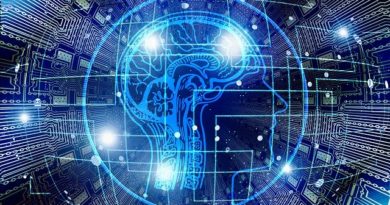Is AI just another tool, or does it redefine the essence of competence itself?

This is the second of our interviews with experts on AI in education for the AI Pioneers project. Thr interview is with Ilkka Tuomi. Ilkka Tuomi is the Founder and Chief Scientist at Meaning Processing Ltd, an independent public research organization located in Helsinki, Finland. He previously worked at the European Commission's Joint Research Centre (JRC), Institute for Prospective Technological Studies, Seville, Spain. In 2020 he produced a background report for the European Parliament on the 'The use of Artificial Intelligence (AI) in education' and has recently produced a study 'On the Futures of technology in Education: Emerging Trends and Policy Implications' published as a JRC Science for Policy Report. He is writing and commenting regularly on AI on LinkedIn.
[Q1] Can you tell us about the motivation behind your recent publication for the EC Joint Research Centre and the future of technologies in learning?
[A1] My recent publication for the JRC was motivated by my curiosity about the future of learning and the rapidly changing technology landscape. I began by asking which technologies would be essential for policy considerations over the next decade. From this, I compiled a list of technologies that seemed promising for initial discussions. In the process, it became clear that a fundamentally new infrastructure for knowing and learning is emerging. We call this “the Next Internet” in the report. My goal was to both initiate a conversation and delve into the connections between these emerging technologies and new educational models. More broadly, I was interested in how these advancements might transform the education system itself. An essential part of my research also revolved around the evolving dynamics of knowledge production and the importance of innovation in knowledge society, and the implications this has for education. For instance, about the emerging sixth-generation networks offer intriguing sociological and cognitive perspectives, and even on the impact of AI on learning.
[Q2] How do new cognitive tools influence our understanding of learning?
[A2] These cognitive tools aren't just emerging as solutions to automate current practices. They delve much deeper, challenging our very understanding of what learning means and how it occurs. My perspective on this is shaped by my background in both AI and learning theory. I approach this topic from both a sociological viewpoint and in terms of how digital transformations impact society as a whole.
[Q3] Could you share some of your background and experiences in the field of AI?
[A3] When I was younger, I was deeply involved in neural networks research and even co-authored a book on the philosophy of AI back in 1989. Around this time, I joined the Nokia Research Center. Initially, I worked with knowledge-based systems and expert systems, in other words the good-old-fashioned AI. Over time, I transitioned towards human-computer mediated interaction and knowledge management. The latter is, of course, very much about learning and knowledge creation. While the buzz around AI is louder than ever today, I find a dearth of profound discussions on the topic. There's a pressing need for a deeper, more thoughtful debate.
[Q4] What impact do you foresee AI having on vocational education?
[A4] AI's impact on vocational education is twofold. Firstly, we're still uncertain about how AI will reshape vocations and the job market. However, it's evident that the essence of vocational training is undergoing change. Technologies, especially generative AI and other machine learning methodologies, will dramatically influence occupational structures and content. This will inevitably change what people learn. Much of what's taught in vocational schools today might become obsolete or require significant modifications. Many educators are concerned that the skills and knowledge they impart today may become irrelevant in just five years. On the other hand, AI will also change how we learn.
[Q5] How can these technologies be integrated into the educational process?
[A5] These technologies offer immense potential for educational applications. Already, there are tools that enable a generative AI system to process, for instance, technical handbooks and repair manuals. With this knowledge, the AI can then answer domain-specific queries, providing up-to-date information about tools and technologies on demand. Consider a trainee in the construction industry; they could access building schematics through AI without having to study them exhaustively. Multimodal AI interfaces could allow them to photograph an unfamiliar object and get guidance on its use. Such an application can be used in fields like automotive repair, where a mechanic can photograph a fault and receive advice on necessary parts and repair procedures. These tools not only aid in teaching but can also be directly implemented in professional settings. Such applications particularly resonate with vocational education, transforming the very core of professional knowledge and identity.
In today's rapidly evolving digital age, vocational education stands at a unique crossroads. At its core, vocational education is profoundly hands-on and concrete, focusing not on abstract knowledge but on tangible skills and real-world applications. It's about doing, making, and creating. And this is where multimodal Generative AI now comes into play.
Generative AI has the potential to integrate the concrete world with the abstract realm of digital information. Real-world objects and practical training exercises can be complemented by augmented and virtual reality environments powered by AI. We're on the brink of a transformative shift where AI will not just assist but redefine vocational training.
Furthermore, the economic implications of AI in this sphere are revolutionary. In the past, creating detailed digital representations of complex machinery, like airplanes, was a costly and time-consuming endeavor. Now, with Generative AI, these models can be produced with increased efficiency and reduced costs. Whether it's for pilot training or for a mechanic understanding an engine's intricate details, AI radically simplifies and economizes the process.
[Q6] Do we need to redefine what we mean by competence?
[A6] Traditionally, competence has been perceived as an individual's capability to perform tasks and achieve goals. It's often broken down into knowledge, skills, and attitudes. Education has historically focused on what I have called the epistemic competence components. The move towards “21st century skills and competences” is fundamentally about a shift towards behavioral competence components that include aptitudes, motives, and personality traits ranging from creativity to social capabilities.
However, an essential nuance often overlooked in our understanding of competence is the external environment. For instance, a highly skilled brain surgeon is only as competent as the tools and infrastructure available to him. It's not just about what resides in the individual's mind but also about the societal structures, technological tools, and the overarching environment in which they operate.
Reflecting on education and technology, the narrative becomes even more intricate. An educator's competence cannot be solely gauged by their ability to use digital tools. The broader context—whether a school has the required digital infrastructure or the societal norms and regulations around technology use—plays a pivotal role. Emphasizing technology for technology's sake can sometimes be counterproductive. The question arises: is AI just another tool, or does it redefine the essence of competence itself?
[Q7] What are the major challenges of AI?
[A7] Looking back, one can find parallels in the challenges faced by earlier technological innovations. My experience in the 1990s at Nokia serves as a poignant example. While AI was once viewed as a magic bullet solution, it soon became evident that the challenges in organizations were as much social as they were technological.
Communication is the heart of learning and innovation. It's not merely about making the right decisions or processing vast amounts of data. Instead, it's about the rich tapestry of human interactions that shape ideas, beliefs, and knowledge. The introduction of new technologies often disrupts existing knowledge structures and requires substantial social adaptation. The process, thus, becomes more about managing change and facilitating communication.
[IT1] [IT2] [Q8] What are the implications of AI for Agency
[A8] Humans have always externalized specific cognitive tasks to tools and technologies around them. In this light, AI doesn't stand as a looming threat but a natural progression, a tool that could enhance human cognition beyond our current boundaries. But AI is also different. Its increasing human-like interactivity and capabilities challenge our traditional, anthropocentric views on agency. In fact, one key message in our JRC report was that we need to understand better how agency is distributed in learning processes when AI is used.
Innovations like AI don't just supplement our existing reality—they redefine it. Grasping this intricate dance between societal evolution and our shifting reality is essential to fathom AI's transformative potential.
[Q39 How will AI shape the future of Education?
[A9] AI's purpose in education should be to enhance human capabilities. This enhancement isn't limited to just individual's cognitive functions; it spans the social and behavioral realms too. In contrast to the post-industrial era, when computers were increasingly used to automate manual and knowledge work, AI and the emerging next Internet are now fusing the material world and its digital representations into an actionable reality. This is something we have not seen before. The material basis of social and cultural production is changing. As a result, the nature of knowing is changing as well. My claim has been that, in such a world, education must reconceptualize its social objectives and functions. The development of human agency might well be the fundamental objective of education in this emerging world. We need to learn, not only how to do things, but also what to do and why. This may, of course, also require rethinking the futures of vocational education and training.


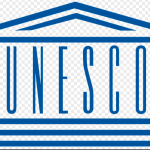
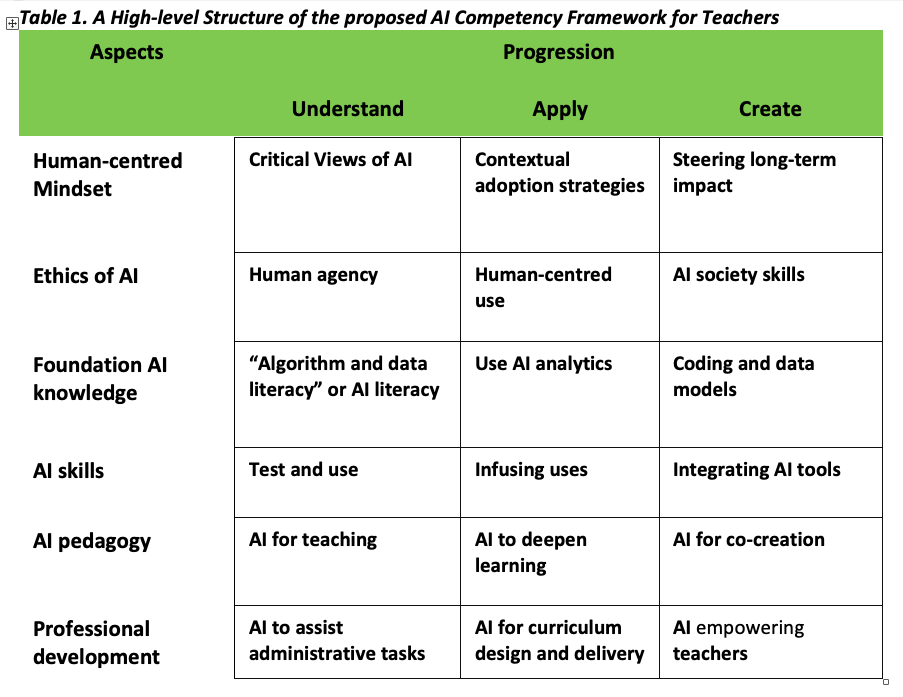

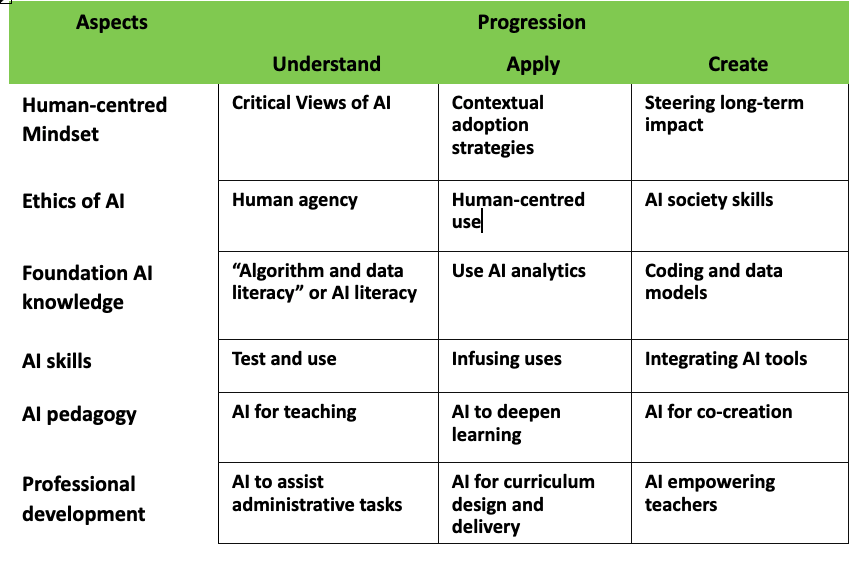
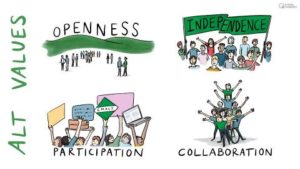
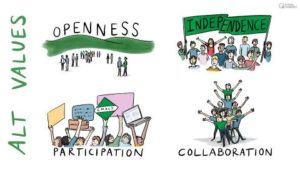 The Association for Learning Technologies in the UK (ALT) has the
The Association for Learning Technologies in the UK (ALT) has the 